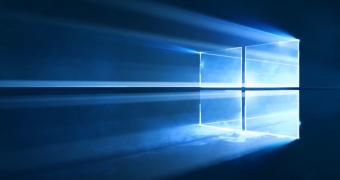Microsoft has finally issued a statement regarding the WikiLeaks Vault 7 leak of CIA documents regarding the agency's hacking powers, saying that computers running Windows 10 software should be safe.
According to Microsoft's statement, the vulnerabilities mentioned in the CIA files were dated and appeared to target older systems.
"We take security issues very seriously and are continuing a deeper analysis to determine if additional steps are necessary to further protect our customers," the company said. Should any additional threats be discovered, Microsoft promises to inform customers.
There is no mention whether people using previous Windows versions are safe from CIA attacks or not.
Apple, Google, Linux claim users are safe
Microsoft's statement falls in line with what we've been hearing from all over the tech community. Apple and Google have said that customers running their latest software appear to be safe from vulnerabilities and that most of the issues mentioned in the WikiLeaks files have already been fixed. It's unclear what vulnerabilities are yet to be patched or whether there really are any.
The Linux Foundation has also addressed the issue with a rather relaxed statement. They said that given the open-source nature of the operating system, with security updates being released every few days, there are little chances for users to be in danger from the CIA as any vulnerabilities they might have been able to exploit have long since been fixed.
The major problem exposed by the CIA files WikiLeaks dumped the other day is the fact that the agency expressed a desire to stockpile zero-day vulnerabilities and find ways to exploit them. If its hackers didn't find the security holes, the CIA bought it off the Internet.
Such vulnerabilities in iOS and Android were used by the CIA to create malware which got them full access to a target's phone, bypassing even encryption layers set down by apps such as WhatsApp, Signal or Telegram. This, of course, is the exact type of thing any serious malware can do.
By refusing to disclose these zero-days to the affected companies, however, the CIA put billions of users at risk. After all, if the CIA found the vulnerability, who's to say other didn't too?
Samsung and LG are still looking into the situation and are expected to release statements on the matter too.

 14 DAY TRIAL //
14 DAY TRIAL //